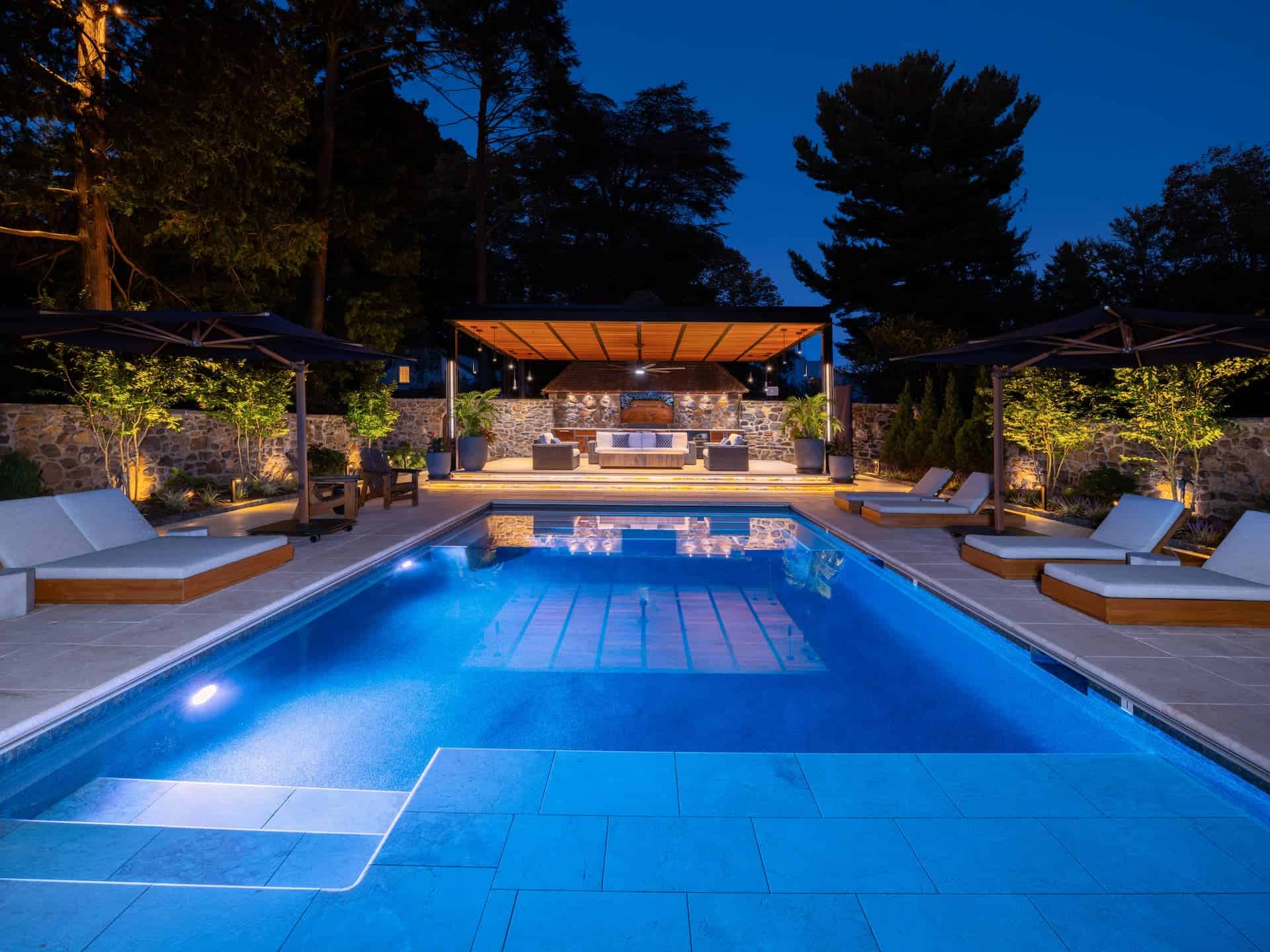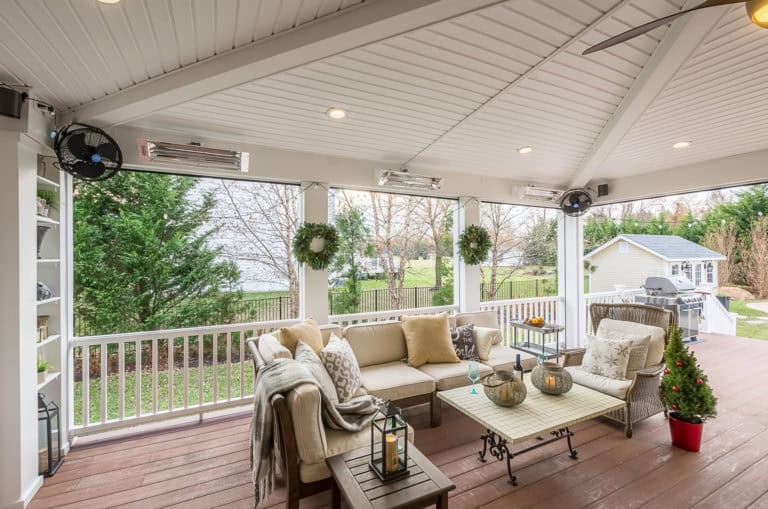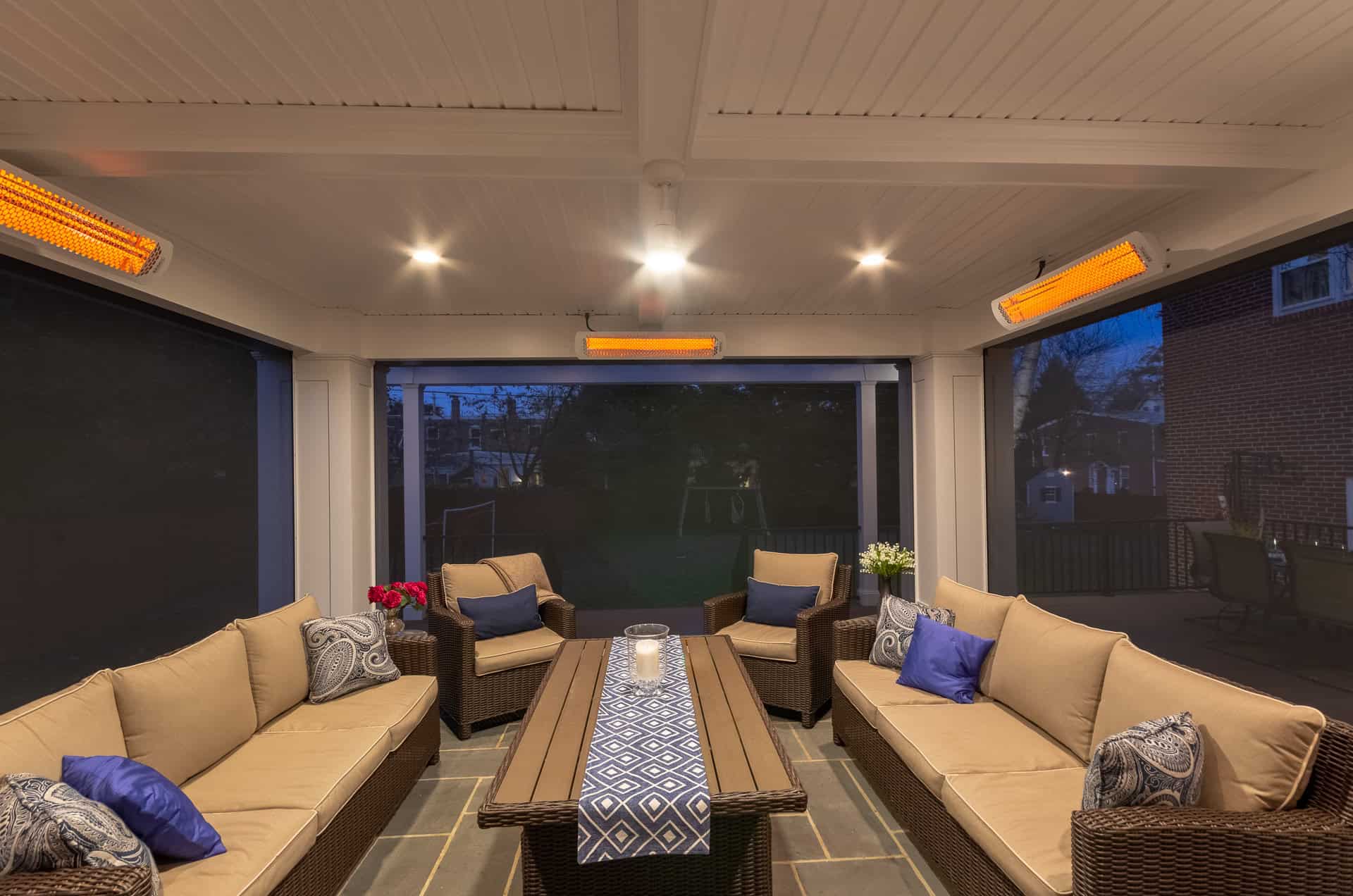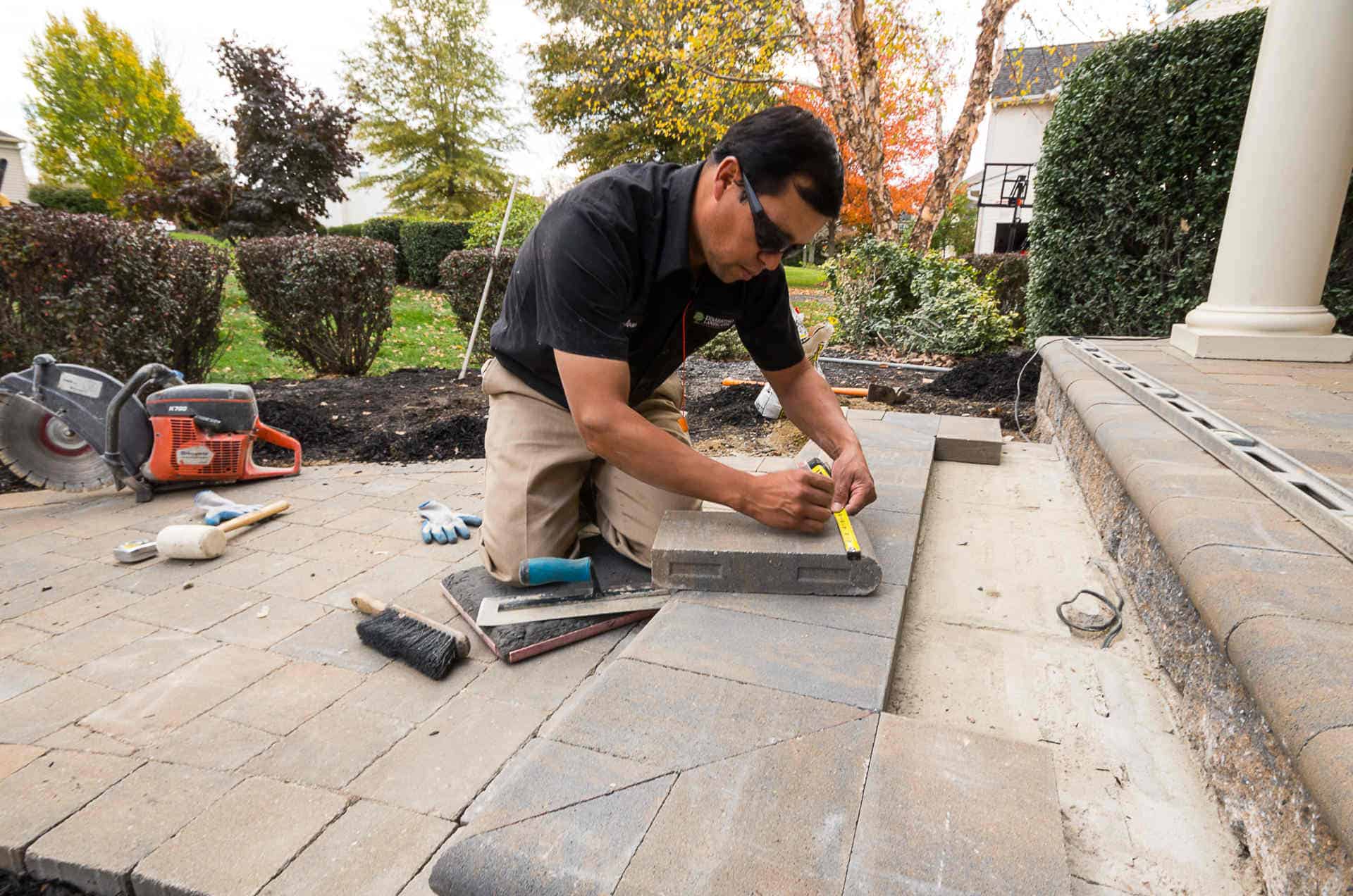Unveiling the Secrets to Sustainable Landscape Design in Delaware County, PA
Transform your Delaware County property into a water-smart landscape that cuts maintenance costs while increasing property values through sustainable design principles.
Share:
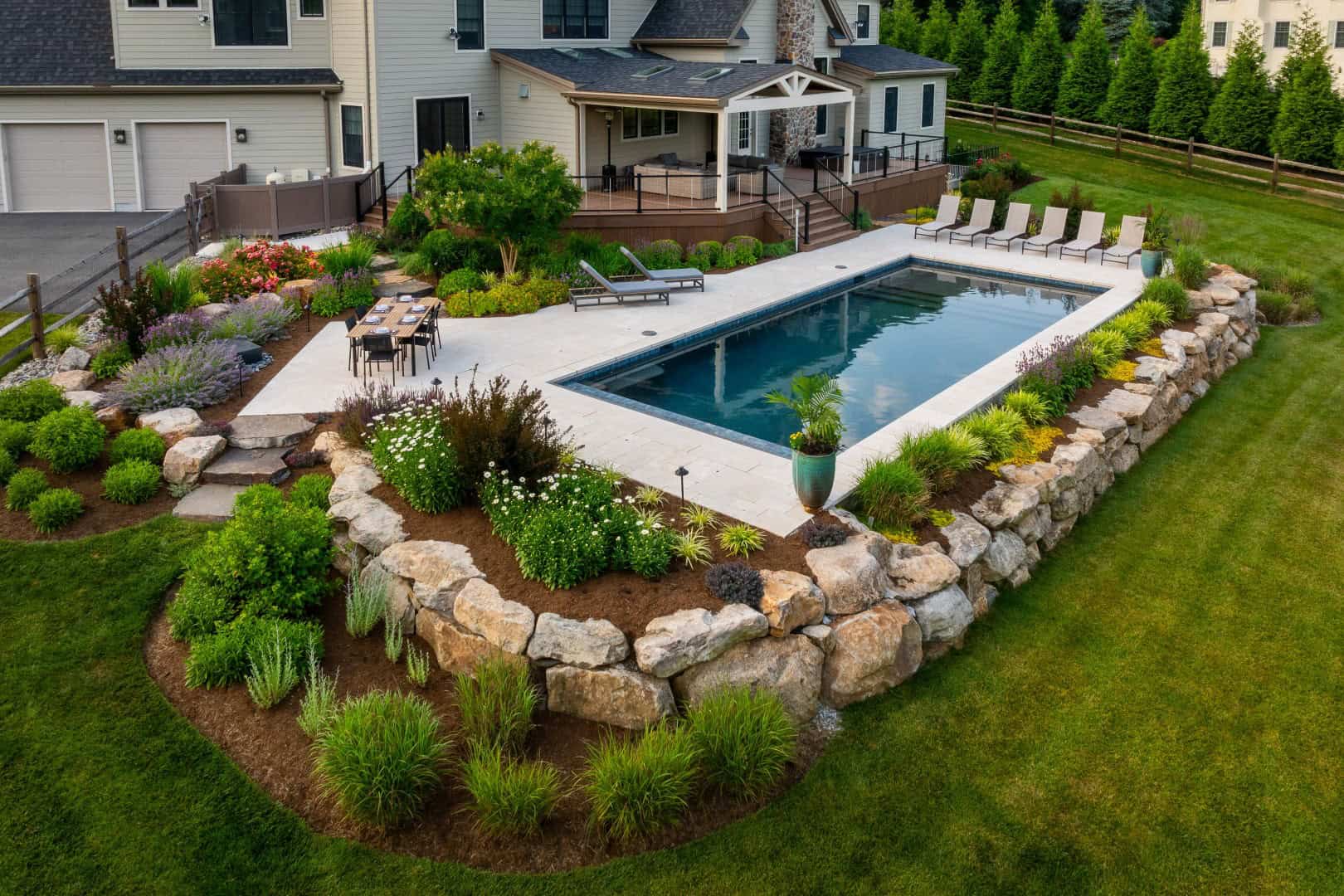
Summary:
The Foundation of Sustainable Landscaping
Sustainable hardscaping prevents soil erosion while managing stormwater runoff that would otherwise flood basements and damage foundations. DiSabatino Landscaping installs permeable paver systems with aggregate base layers that filter rainwater while supporting heavy loads from vehicles and foot traffic. Retaining wall construction uses recycled concrete blocks with integrated drainage systems that prevent water buildup behind structures. These engineered solutions eliminate the washout problems that destroy traditional landscapes during Delaware County’s heavy spring rains. Patio installations incorporate permeable materials that allow 15-20 gallons of water per square foot to penetrate naturally, reducing runoff by 85% compared to solid concrete surfaces. Properly designed hardscaping structures last 25-30 years with minimal maintenance, while traditional alternatives require replacement every 8-12 years. Native stone selections like Pennsylvania bluestone provide slip-resistant surfaces that improve with age rather than deteriorating under freeze-thaw cycles.
Professional Implementation Standards
Sustainable landscape construction requires specialized knowledge of local soil conditions, native plant communities, and water management techniques specific to southeastern Pennsylvania. DiSabatino Landscaping’s contractors understand Delaware County’s clay soil composition and install proper drainage systems that prevent plant root rot and foundation water damage. Deck construction uses sustainably harvested lumber with natural preservatives that resist decay without toxic chemicals. Installation techniques include proper spacing for air circulation and moisture management that extends structural life by 40-50% compared to standard construction methods.
Energy-Smart Lighting Solutions
Sustainable landscape construction requires specialized knowledge of local soil conditions, native plant communities, and water management techniques specific to southeastern Pennsylvania. DiSabatino Landscaping’s contractors understand Delaware County’s clay soil composition and install proper drainage systems that prevent plant root rot and foundation water damage. Deck construction uses sustainably harvested lumber with natural preservatives that resist decay without toxic chemicals. Installation techniques include proper spacing for air circulation and moisture management that extends structural life by 40-50% compared to standard construction methods.
Integrating Natural Elements
Native plant communities create self-sustaining ecosystems that require 70% less water and eliminate the need for chemical fertilizers and pesticides. DiSabatino Landscaping selects Pennsylvania native species like Eastern Redbud, Spicebush, and Wild Bergamot that provide year-round interest while supporting local wildlife populations. Plant establishment techniques include mycorrhizal inoculation that increases root efficiency and drought tolerance by 300-400%. Strategic tree placement reduces cooling costs by 25-35% through summer shade while allowing winter sunlight for passive solar heating. Native meadow installations require mowing only once per year compared to weekly lawn maintenance, reducing fuel consumption and noise pollution. Pollinator gardens featuring native wildflowers support declining bee populations while creating colorful displays that peak at different times throughout the growing season. Rain garden plantings filter stormwater pollutants while creating attractive landscape features that handle 2-3 inches of rainfall without overflow.
Advanced Water Management Systems
Bioretention areas and constructed wetlands capture and treat stormwater runoff while creating habitat for beneficial wildlife. DiSabatino Landscaping designs these features with engineered soil mixes that remove 85-95% of urban pollutants before water reaches groundwater supplies. Drip irrigation systems deliver water directly to root zones with 95% efficiency compared to 65% for traditional sprinkler systems. Smart irrigation controllers use weather data and soil moisture sensors to adjust watering schedules automatically, reducing water usage by 30-50% while maintaining optimal plant health.
Long-Term Resource Conservation
Sustainable maintenance practices reduce ongoing costs while improving landscape health through organic soil building and integrated pest management. Composting programs convert yard waste into nutrient-rich soil amendments that improve clay soil structure and water retention. Mulching with local wood chips retains soil moisture, suppresses weeds, and adds organic matter as it decomposes naturally. Seasonal maintenance schedules focus on plant health monitoring and preventive care rather than reactive treatments that cost 3-4 times more than prevention.
Embrace Sustainable Landscaping Today
Sustainable landscape design reduces your environmental impact while cutting maintenance costs and increasing property values through water-smart, low-maintenance outdoor spaces. DiSabatino Landscaping’s proven methods create landscapes that become more beautiful and less expensive to maintain each year. Your Delaware County property can demonstrate environmental leadership while providing the outdoor sanctuary your family deserves. Contact DiSabatino Landscaping today to discover how sustainable design principles can transform your landscape into a thriving, cost-effective outdoor investment.
Article details:
- Published by:
- DiSabatino Landscaping
- Published to:
- Last modified: June 13, 2025
Share:
Continue learning:
